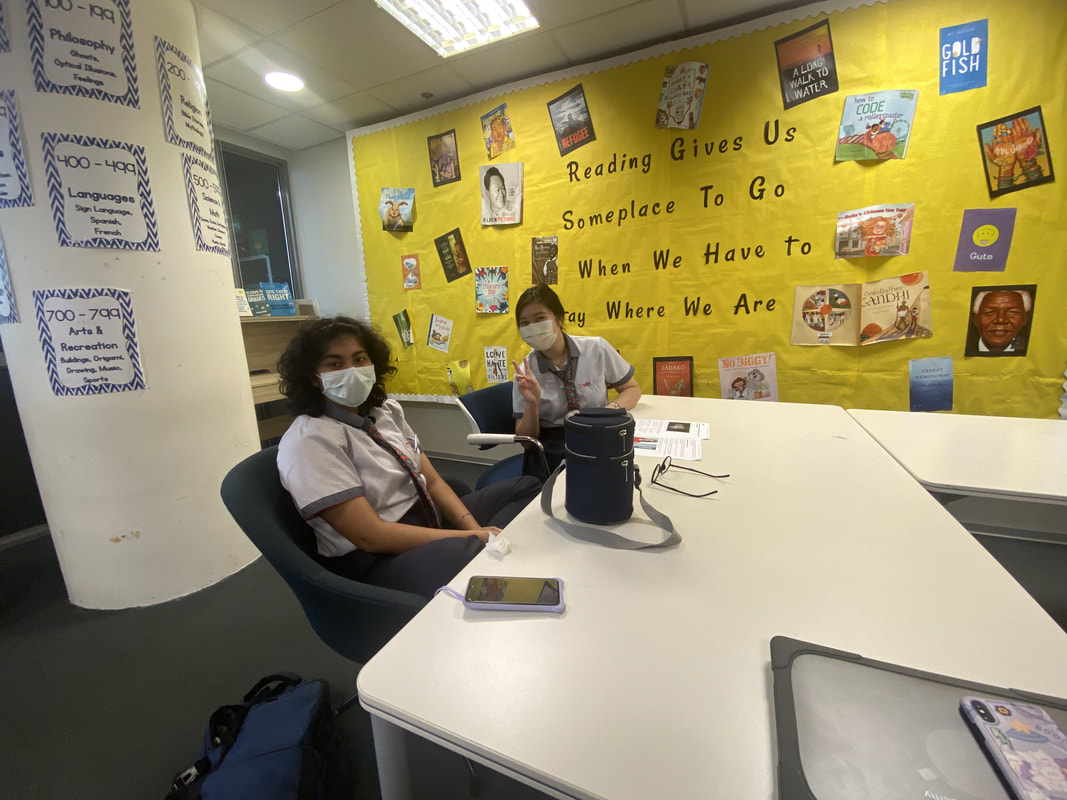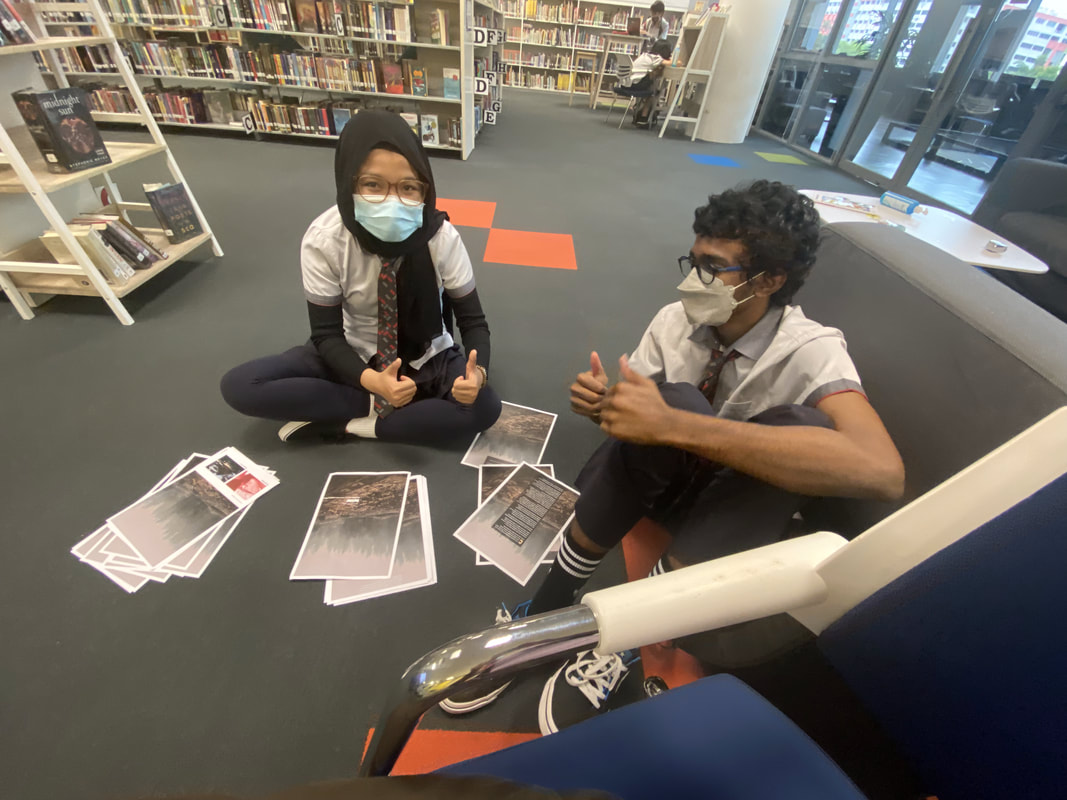|
The Extended Essay has long been a passion of mine being involved in IB Education. My first ever student I supported to get an A grade in Visual Art and have helped many others get great grades for them in the Extended Essay after over 12 years experience helping students in the Extended Essay, including 7 years as an Extended Essay Coordinator. I see student make the same mistakes continually, and want to share what I see in order to help avoid them. These are some of the common pitfalls students need to avoid in the proposal and continuing on in the Extended Essay.
1. Vague Research Question: A clear, focused research question is crucial. Everything else in the essay follows on from clear research question that allows for critical thinking. Many students start with a question that is too broad making it difficult to develop an Extended Essay that goes deep enough into the subject or a question that is too narrow and technical and does not allow for critical thinking. Also, a question that is too narrow is difficult to find quality research on the subject. 2. Choosing a Topic Without Enough Sources: Some students select a topic without first checking the availability of quality and relevant sources. This can lead to difficulties in conducting thorough research, ultimately impacting the depth and quality of the essay. 3. Ignoring the Subject Guidelines: Each IB subject has specific criteria and expectations for the extended essay. Failure to adhere to these guidelines can result in an off-target proposal or an essay that does not fulfil the subject's requirements. Students need to check the requirements before starting, these can change so it is important the subject leaders are kept upto date with any amendments to the guidelines, which can be found here. 4. Underestimating the Importance of the Supervisor Meetings: Some students do not fully utilise their supervisor meetings, missing out on valuable guidance and feedback. Regular and meaningful engagement with the supervisor is crucial for refining the research question, methodology, and structure of the essay. Students should not underestimate the knowledge and experience of their supervisors when it comes to the Extended Essay. 5. Overlooking the Importance of Planning: Lack of proper planning, essay structure and time management can lead to rushed research and writing process. This is in keeping with the IB Learner Profile of Balanced., that students need to ensure they working at a measured pace through the essay and not pulling all night sessions before the deadline. This can affect the essay's overall quality and lead to unnecessary stress. 6. Plagiarism and Not Citing Sources Properly: Plagiarism is a serious offence in the IB. Failing to cite sources correctly or paraphrasing too closely is classed as plagiarism. Plagiarism can be deliberate or accidental, either way understanding and adhering to academic integrity is crucial. Types of plagiarism can be found from Grammarly here. 7. Not Aligning the Topic with Personal Interest: Some students choose a topic based on what they think might impress the examiners rather than their interests. A lack of genuine interest in the subject and topic can make the research and writing process more of a grind than a worthwhile experience. 8. Neglecting the Formal Presentation Requirements: The IB has specific requirements for the structure and presentation of the extended essay. These are the easiest marks to gain or lose. Overlooking these requirements can lead to unnecessary loss of points. 9. Failure to Reflect: The reflection sessions are an integral part of the extended essay process, contributing to the final grade. Some students do not take these reflections seriously. The reflections should talk about the engagement and challenges of the essay and how they have overcome these challenges. Many reflections do not talk about the topic or the essay itself. 10. Insufficient Analysis and Critical Thinking: Some essays are more descriptive than analytical, lacking a critical examination of the topic. Sometimes, it is due to the quality of the research question that it does not allow for critical thinking. Some Science papers end up being more of a Paper for an experience rather than leaning into Essay. Therefore, it's important to not only present information but also to analyse and reflect on its implications. The key to a quality Extended Essay is starting early, choosing a topic of genuine interest, utilising supervisor support, and adhering to IB guidelines are key strategies for success. Moreover, is to learn, have perseverance and to overcome challenges that writing essays entail in order to give great preparation for University. References IBO. “Subject Specific Guidelines.” Ibo.org, 2016, ibpublishing.ibo.org/extendedessay/apps/dpapp/guidance.html?doc=d_0_eeyyy_gui_1602_1_e. IBO. “What Is the Extended Essay?”, 2024, www.ibo.org/programmes/diploma-programme/curriculum/dp-core/extended-essay/what-is-the-extended-essay/. Kramer, Lindsay. “7 Common Types of Plagiarism, with Examples.” Grammarly Blog, 15 Feb. 2022, www.grammarly.com/blog/types-of-plagiarism/.
0 Comments
By Christopher Hoddinott The World Studies Extended Essay (WSEE) is an exciting Extended Essay to be involved in as it is so different from the subject extended essay, it allows students to focus on the academic investigation of a world issue using two different subject disciplines. However, students are sometimes misunderstood by students and what’s its focus should be. This post aims to clarify some of the issues with the WSEE and some of the common pitfalls I have seen over the years. Getting Started, The WSEE is an essay that allows a student to focus academically on an issue that they care about that does not fit easily into the subject-specific criteria set out by the IB. Therefore, the issue and research questions need to be the centre of the essay and the starting point of the essay. Sometimes, students are indecisive in which subject to choose for their Extended Essay and therefore see the WSEE as a way to combine two subjects, and the issue they are exploring comes secondary to the subject investigation. It leads to an essay being unfocused and trying to show as much subject knowledge rather than an academic in-depth study into a World Issue. “The WSEE reverses the normal principle of EE choice since with a subject EE you should choose the subject first and then the topic but with the WSEE it is the other way round. (Hoang and Taylor, 2019)” When starting the WSEE I ask students to attend an extra session run after school or lunchtime to complete a session on getting started with the WSEE. The focus of the session is
Choosing a subject in which they care helps the student to engage in the WSEE process. It is also more likely the student has good background knowledge in the issue they have chosen and can use this as a good starting point to explore their investigation. The Global Issue and the local manifestation of the issue The Global issues has to fit into one of the six Global Themes, which is important in considering the issue. Global Themes
Students need to focus on the local manifestation of the issue or compare two places where the issue is of concern. From my experience, it is good to recommend that is where they live, or where they are from as they have experience of the local implications of the issue and are able to contextualize the issue in a more nuanced approach. As it helps the student understand the cultural implications and the ever-changing and developments of the issue. The issue has to be contemporary The issue needs to be current. It can be about ongoing issues such as Climate Change, Food security, Gender Inequality, Racial Inequality, the influence of social media on mental health. However, it can not be about historical issues such as the financial crisis of 2007 or the Arab Spring of 2010. Whilst issues have arisen and are still felt from them, they are historical issues and are not classed as current. It is important from the beginning for students to understand that the issues are ever-changing and can develop quickly. Part of the skill of the essay is to be to select how they respond to developments of the issue in their essay. How can it be interdisciplinary? One of the starting points in understanding the complexity of the problem. This is why it cannot easily be solved and also therefore there is more than one way to investigate the subject. I ask students what possible combinations of subjects can be used to investigate the Global Issue. The students come up with a number of possible subjects to investigate the issue which helps students understand the different perspectives that you can view the issue from. Students then choose the subjects most relevant to themselves with their own interests and relevant subject knowledge. It is important to not choose subjects that are too close together. Such as Business and Economics. It does not allow for a valuable and in-depth discussion. Students also need to be clear and explicit on which two subjects they are using to investigate the issue and the methodology in which they use. Remaining Balanced in the Essay, Students that feel strongly towards an issue can lean to a particular bias in their essay. It is important to remind students that it is an academic essay and they produce a balanced argument based on sound and quality research and draw their own conclusions from that. Students should consider looking at the issue from different perspectives. The essay needs to show, clear investigation, analysis and critical thinking. Having a range of viewpoints enables students to apply their critical thinking skills to why or why not they agree. It is fundamental that students maintain academic integrity through the essay. The Research is quality and in-depth. With the WSEE about current and global issues, it is easy for students to rely too heavily on media-based research. Whilst this can be used and is useful, students should be using reliable Academic sources such as Government databases, Journals, Case studies. Whilst WSEE can be completed using only secondary sources, students should investigate possibilities of creating and using primary data to strengthen their essays. Who can supervise the WSEE? Due to the interdisciplinary nature of the WSEE. Any teacher can supervise WSEE students. The focus should be on the issue and the research question related to the issue and how they are researching and developing their argument through an academic essay. Please feel free to use the slides under creative commons attribution and share-alike. If you have any questions please feel free to contact me. [email protected] Students from XCL World Academy looking at current world issues and thinking of local manifestations of the issues and which subjects can be used to explore the issues.
|
About meI am the Projects Coordinator and Senior School Music teacher at XCL World Academy in Singapore. I have over 10 year of IB teaching experience and working on bringing great learning experiences and opportunities to students. Archives
January 2022
Categories
All
|




 RSS Feed
RSS Feed
